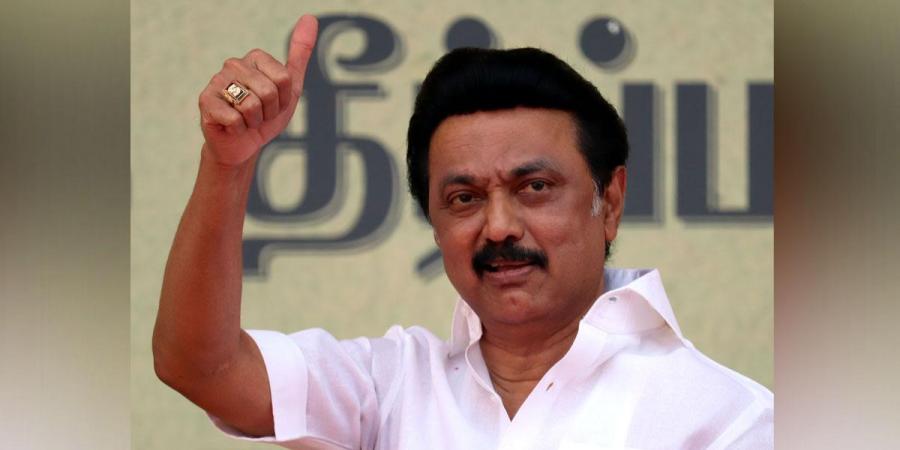Chennai: Slowly but surely, DMK supremo and Tamil Nadu Chief Minister M.K. Stalin is building an anti-Centre platform on a range of issues that powered him to power in the Assembly elections held last month. A tightrope walk it is for Stalin, who has to maintain a good equation with the Central government on the administrative level in the fight against Covid-19 pandemic, but at the same time he cannot afford to go easy on the issues that his party raised during the poll campaign, be it NEET or the New Education Policy.
Which is why from the word go, the DMK government has gone hammer and tongs against the Central government on these two issues. Also, Stalin has mooted a resolution against the three farm laws passed by the Central government.
And as if these were not enough, the Lakshadweep controversy has just started and is bound to have ramifications in South India. Stalin has waded into the controversy by seeking the recall of the island administrator Praful Patel for his attempts to impose “anti-people” legislation in the Union Territory. Incidentally, the island has cultural ties with southern regions of the country, and more so with Kerala, which has also gone on the offensive against the authorities in the tiny UT.
Stalin lost no time in tweeting and charging Patel with forcibly bringing in regulations that could alienate the majority community in the tiny UT. “The Prime Minister’s office should intervene in the matter and relieve him of the post,” Stalin said in his tweet. In fact, this is in line with the strong criticism mounted by his alliance partner, MDMK chief Vaiko, who also condemned Patel’s actions.
Nieghbouring Kerala, which has closer cultural ties with the people of Lakshadweep, is proposing a resolution in the Assembly to express solidarity with the people of the island. Chief Minister Pinarayi Vijayan has proposed the resolution, for which support has come from the Opposition Congress as well.
But Stalin has to walk the tightrope given the necessities of the state when it is fighting the Covid-19 pandemic and needs all the help it can get from the Central government. Only the other day, Stalin sought Central government nod to take on lease HLL Biotech Ltd’s integrated vaccine complex (IVC), and run the vaccine complex with full operational freedom, without past liabilities.
The Tamil Nadu Chief Minister said the state would identify a suitable private partner and start production at the vaccine centre at the earliest. It would boost the efforts of the country in meeting vaccination targets if the vaccine centre gets activated. The manufacturing facility, nearly ready, is lying idle, also because the attempt to find a private partner failed. But Stalin said he was confident of finding a partner to step up vaccine manufacturing.
The TN Chief Minister is firm, even on issues that the Centre may find irksome, be it the language issue or for example the state Finance Minister P. Thiagarajan taking on Sadguru Jaggi Vasudev and criticising him for his campaign to free temples of government control.
Sadguru, seen as someone close ideologically to the Sangh and a huge supporter of Prime Minister Narendra Modi on a host of issues, was dismissed by the minister as someone not to be taken seriously. Incidentally, even the BJP manifesto for the 2021 Assembly elections argued that temples must be freed from the administrative control of the “secular state”. The state, according to the BJP manifesto, had no say on religious practices at the temple and should be handed over to an “autonomous board” comprising devotees and religious heads.
Sadhguru had, during television interviews, highlighted his campaign for freeing temples during the run-up to the Assembly elections. The HR and CE department now manages 38,646 Hindu and Jain religious institutions and oversees 56 mutts, administering over 4.78 lakh acres of land, 22,600 buildings, and 33,665 vacant sites. The tracts of farmland with these temples have largely been leased out to small and marginal farmers. The BJP alleges lease arrears, encroachment of temple land, mismanagement of assets, and transfer of land titles to private persons under the HR and CE department.
Moving on, the Stalin government dropped all charges against Tuticorin protesters and cancelled FIRs filed against them for agitation against the Sterlite Copper smelting plant. Firing on protesters by police had killed 13 of them and since then the plant has been closed. Recently, the Supreme Court permitted the opening of the factory, but with a strict order to allow manufacturing of oxygen only to augment the supply of the essential item in the fight against Covid-19.
Incidentally, the AIADMK government had ordered a crackdown on the protesters, who were against the plant over safety and security concerns. Dropping cases against the protesters filed by the AIADMK government, which was alleged to be remote-controlled by the BJP, was one of the election promises made by Stalin and other senior party leaders.
Lakshmana Venkat Kuchi is a senior journalist tracking social, economic, and political changes across the country. He can be reached on kvlakshman@gmail.com and Twitter handle @kvlakshman

